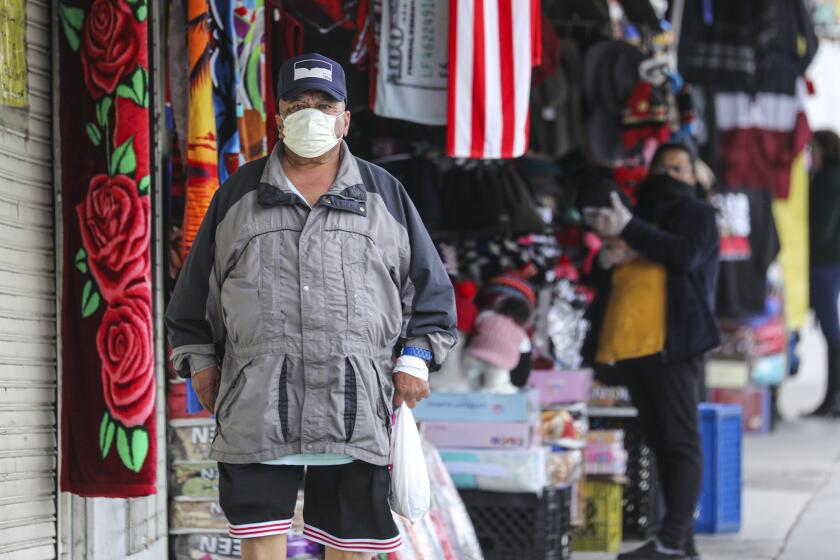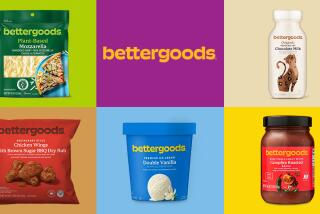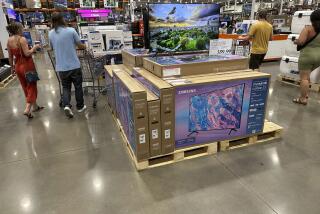What’s being stockpiled in America’s ‘pandemic pantries’? Oat milk
- Share via
It’s not just hand sanitizers and medical masks that are flying off U.S. shelves as the coronavirus outbreak spreads. Shoppers are also stocking up more surprising items — like oat milk.
Sales of dairy alternative products spiked more than 300% in the week ending Feb. 22, according to a note published this week by market research firm Nielsen. Other products that are seeing a boost in purchases include dried beans, energy beverages and pretzels.
Consumers are rushing to amass health-related items and goods that can be stored for a long time in case the outbreak requires people to hunker down at home for a long period. Nielsen found that shoppers have also stocked their “pandemic pantries” with fruit snacks, pet medicine, first aid kits, disposable diapers and deodorant.
Get the latest coronavirus updates from our staff in California and around the world.
This will likely strain some manufacturers, which may struggle to replenish stocks to match demand, Nielsen said. “We expect the rush to stock up to have an almost immediate impact on supply chains for manufacturers of the most sought-after goods.”
Total cases of the virus that started in China have topped 96,000, with infections rising in Europe and elsewhere.
The West Coast, where the U.S. outbreak is so far centered, has led the spike in medical mask sales, Nielsen found. Drugstores in the Los Angeles metropolitan area posted year-to-date dollar growth of 340%, while the San Francisco area saw a 541% increase compared with this time last year. But buying has shifted to products that keep people healthy too: U.S. sales of aerosol disinfectants were up 19% in the week ended Feb. 22. Sales of supplements rose 7.8%.
E-commerce boost
Consumers will also likely shop more online, as they try to limit their exposure to others in public spaces since the virus appears to be spread through coughs and sneezes, Nielsen said. The use of e-commerce may also lessen any retail impact. The company noted that China’s small- to medium-size retailers are using e-commerce to keep their stores stocked — something that was not an option 17 years ago when the severe acute respiratory syndrome (SARS) outbreak hit.
“Online suppliers have reacted very, very quickly by offering store owners, for example, mobile applications for sourcing orders,” Ryan Zhou, vice president for consumer packaged goods for Nielsen China, said in the note. “So online has really helped suppliers react and adjust their supply systems in ways that didn’t exist during SARS.”
More to Read
Eat your way across L.A.
Get our weekly Tasting Notes newsletter for reviews, news and more.
You may occasionally receive promotional content from the Los Angeles Times.












